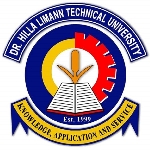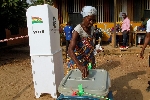GES decision “harsh, high-handed, whimsical,” could prove counterproductive – Okudzeto Ablakwa
 Samuel Okudzeto Ablakwa
Samuel Okudzeto Ablakwa
Member of Parliament (MP) for North Tongu and former Minister of Education Samuel Okudzeto Ablakwa has described the dismissal and barring of some 14 final-year students from writing their remaining West African Secondary School Certificate Exams (WASSCE) by the Ghana Education Service (GES) as “harsh and whimsical.”
The GES dismissed some 14 final-year students identified in various videos that have gone viral on social media inciting and participating in vandalism on various school campuses after sitting their first few WASSCE papers.
Four teachers have also been interdicted in connection with the violence that erupted in the schools.
In a statement announcing the punitive measures, the GES said the sanctions are meant to deter others from such acts of vandalism.
Reacting to the dismissal of the students in a post on Facebook on Saturday, 8 August 2020, Mr Ablakwa wrote: “To be succinct: “The GES sanctions meted out to the named SHS students are harsh, high-handed, whimsical and could prove counterproductive.”
“I am one of many who have already condemned the misconduct of the WASSCE candidates which we saw in viral videos on social media. However, if there must be punishment, although I take the view that their apologies could have been considered - I have always subscribed to punishment that reforms and not punishment that destroys.”
Mr Ablakwa is also of the opinion that there is no need for the Ministry of Education to destroy the future of the dismissed students in the process of reforming them.
“The offending students could be made to sign a bond of good behaviour, allowed to complete the final examinations after which the release of their results may be delayed until surcharging and counselling obligations have been carried out. We do not have to destroy the future of these teenagers,” Mr Ablakwa stated.
He also called for independent investigations to be conducted into the circumstances leading to the action of the students in addition to reformative punishment.
“While pursuing the reformative punishment I propose, it is absolutely essential that independent investigations are conducted into the circumstances that led to the rather strange expectations and conditions that have brought us to this embarrassing juncture. In other words - who told the students to expect a particular set of questions? Who assured them of weak and compromised invigilation? Why did some teachers gang up with students to attack WAEC officials? Why does it appear that students were simply not prepared for the WASSCE, what went wrong?
“These are fundamental issues for which we must seek urgent answers and for which arbitrary destructive punishment does not address.”
Source: classfmonline.com
Trending News

Hilla Liman University begs for students accommodation
01:10
GACL interdicts KIA staffers who helped Dutchwoman smuggle cocaine
03:39
EC interdicts five officials over missing BVDs
13:33
Renaming of Ameri Power Plants deceptive: MP
11:14
Nigeria recovers $24m in poverty minister investigation: EFCC
03:26
Former Kotoko player George Asare elected SRC President of Presbyterian University Law Faculty
08:35
Highways Minister donates to motivate Bus Stop Boys
14:34
Int'l Medical Lab Science Day: Amend relevant laws to improve the regulation of our profession – GAMLS to gov’t
13:37
Ghanaian students in Serbia send SOS for delayed stipends
08:31
EC sets April 30 for Ejisu by-election
13:35



